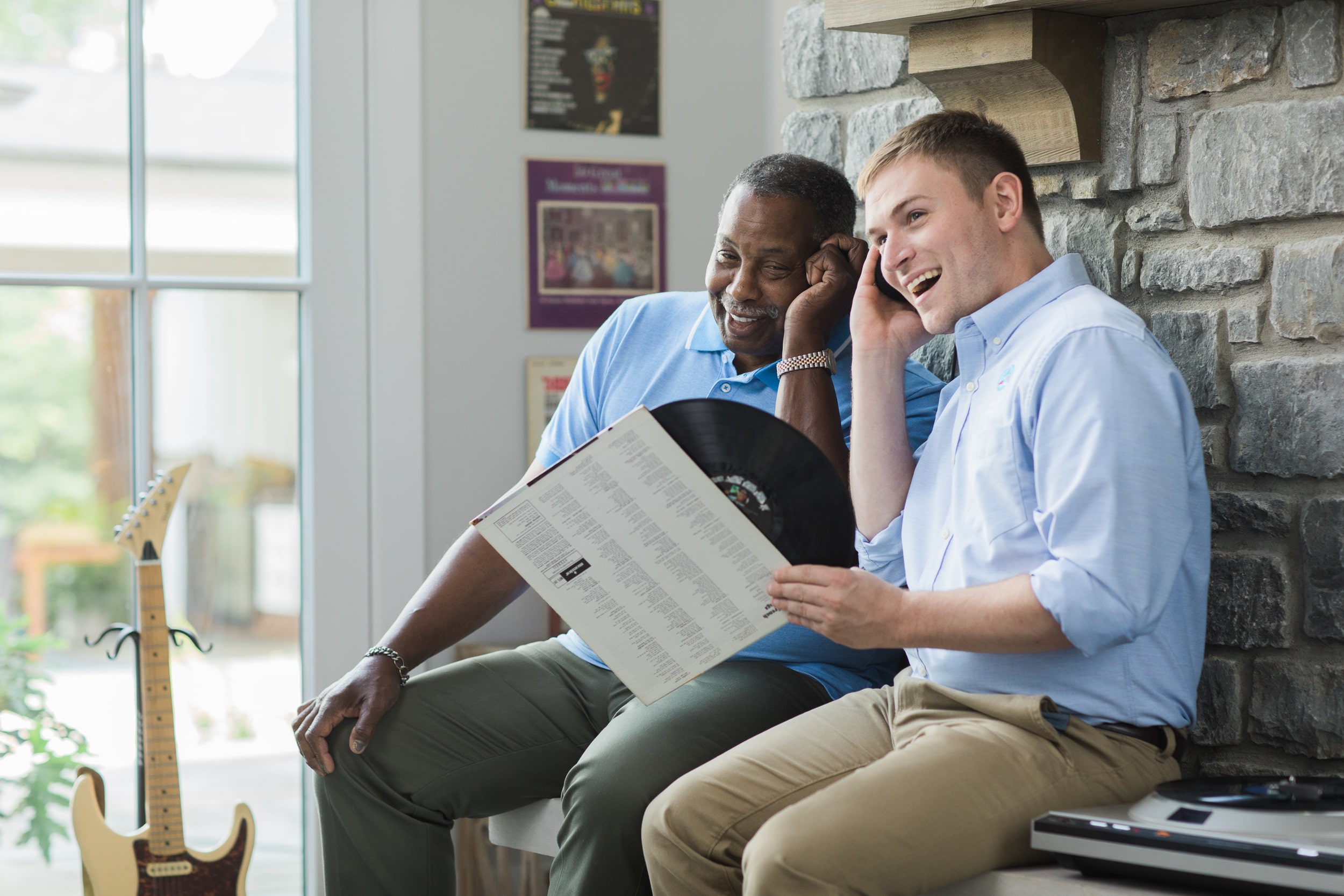At-Home Care Services for Seniors
Let our caregivers help where it matters most with a unique care plan adapted to your needs
Home » Aging and Driving
- Starting the Conversation
- How to Support Family caregivers
- Assessing Home Care Options
- What to expect with Home Care
- Senior Care is a Family Issue
- Paying for care
- Seniors and Nutrition
- Legal Considerations for Seniors
- FAQ
- Veterans Care Programme
- Making Tough Choices about Elder Care
- Aging and Driving
- Questions to Ask Your Doctor (PDF)

Aging and Driving: Staying Safe and Keeping Independence
Driving gives us independence and control. Ensure your loved one’s safety behind the wheel by being attentive. For more information, contact Comfort Keepers today.
How Paying Attention Can Keep Your Loved One Safe
Everyone adapts their behavior to fit their needs. We may do this to be more comfortable or to feel safer. Sometimes these shifts are subtle; we may not even realize we’ve made an adjustment. As we age, we change the way we tackle our everyday tasks, and a great example of this is driving. A survey from the CDC showed that in drivers over 65 years old, 57% of men and 81% of women avoided driving in specific conditions. Those conditions included:
- bad weather
- driving at night
- long trips
- highways or high speed roads
- heavy traffic
In this survey, bad weather and night driving conditions were the leading reasons for self-regulation. You may have seen this happen in your own family. Driving in adverse conditions can be stressful for anyone, and older drivers have even more to consider.
Helping Seniors Plan Ahead for Driving
To support your loved one as they age, you should think and plan for what may happen in the future. Your senior’s driving will adjust as their abilities change—and rightly so! But by paying attention to actions that could be dangerous, you can avoid a major accident.
Consider your loved one’s medical concerns and imagine how their driving could be impacted—your senior may not even notice that they’re doing something differently than normal. Does your loved one have:
- hearing problems? This could inhibit their ability to hear sirens, horns, brakes, or other traffic noises. This could also stop them from
- hearing unusual sounds their car is making.
- trouble seeing? Or do they see floaters? This could impair their ability to quickly change their eye focus.
- high blood pressure? This could be exacerbated in traffic.
- joint pain? This could affect reaction times.
- neuropathy in their feet? This numbness could lead to pressing the accelerator or brake harder than intended.
- multiple medications? Depending on the medicine, the side effects could cause fatigue or brain fog
Helping Seniors Stay Safe While Driving
Driving is a source of independence, and it’s possible to keep that privilege far into one’s golden years. To stay safe and keep peace of mind for both you and your senior, make sure to:
- leave a large distance between cars on the road
- turn headlights on for safety
- pre-plan the route or use GPS
- have regular eye exams
- have regular hearing exams
- review medicines with doctor to anticipate side effects, and
- consider using a public transit service or ride share service like Lyft
With preparation and precaution, driving as a senior can still be a realistic and safe mode of transportation. However, preparedness also means keeping an eye on warning signs. Some warning signs that your loved one’s driving is no longer safe include:
- damage or unusual wear on your loved one’s car
- tickets or fines in the mail
- improper car maintenance (oil not changed,
- gas tank empty, poor tires, etc.)
- fear or skittishness about driving
Help your senior by being attentive; don’t ignore the warning signs. Some signs may seem small, but they could be indicative of a deeper problem. If you feel genuine concern for your loved one’s safety, it may be time to talk with them about no longer driving.
Helping Seniors Stay Safe While Driving
Most likely, your loved one already knows that their driving isn’t what it used to be. The conversation about driving is a difficult one, and you should anticipate multiple talks over a stretch of time. It may be difficult for your loved one to accept what you’re telling them. To help, frame the conversation in questions, so that you can express your concern without sounding accusatory.
Examples Could Be:
- “Dad, how’s driving been? Is it hard to (see the lines on the road/tell the light colors/drive at night)…?”
- “Hey, I noticed you’ve been catching rides with Edith lately; is everything okay with your car? Do you feel okay driving?”
- “How has your car been driving? Has the (wheel been shaking/engine made new noises/check engine light come on)…?”
These are sensitive conversations, and you should be open and respectful. Show your loved one what you’ve noticed, and give them the opportunity to explain. It’s unfair to generalize older peoples’ driving or make assumptions about your senior. Being patient and actively listening will help you choose the right option with your senior.With Comfort Keepers®, you don’t have to worry about transportation. Your loved one’s caregiver can take them wherever they need to go. For more information about Comfort Keepers, contact us today. Individual franchise locations may vary in services offered.
HOME CARE SERVICES IN YOUR NEIGHBOURHOOD
Our caregivers are ready to help, with the care your senior needs






